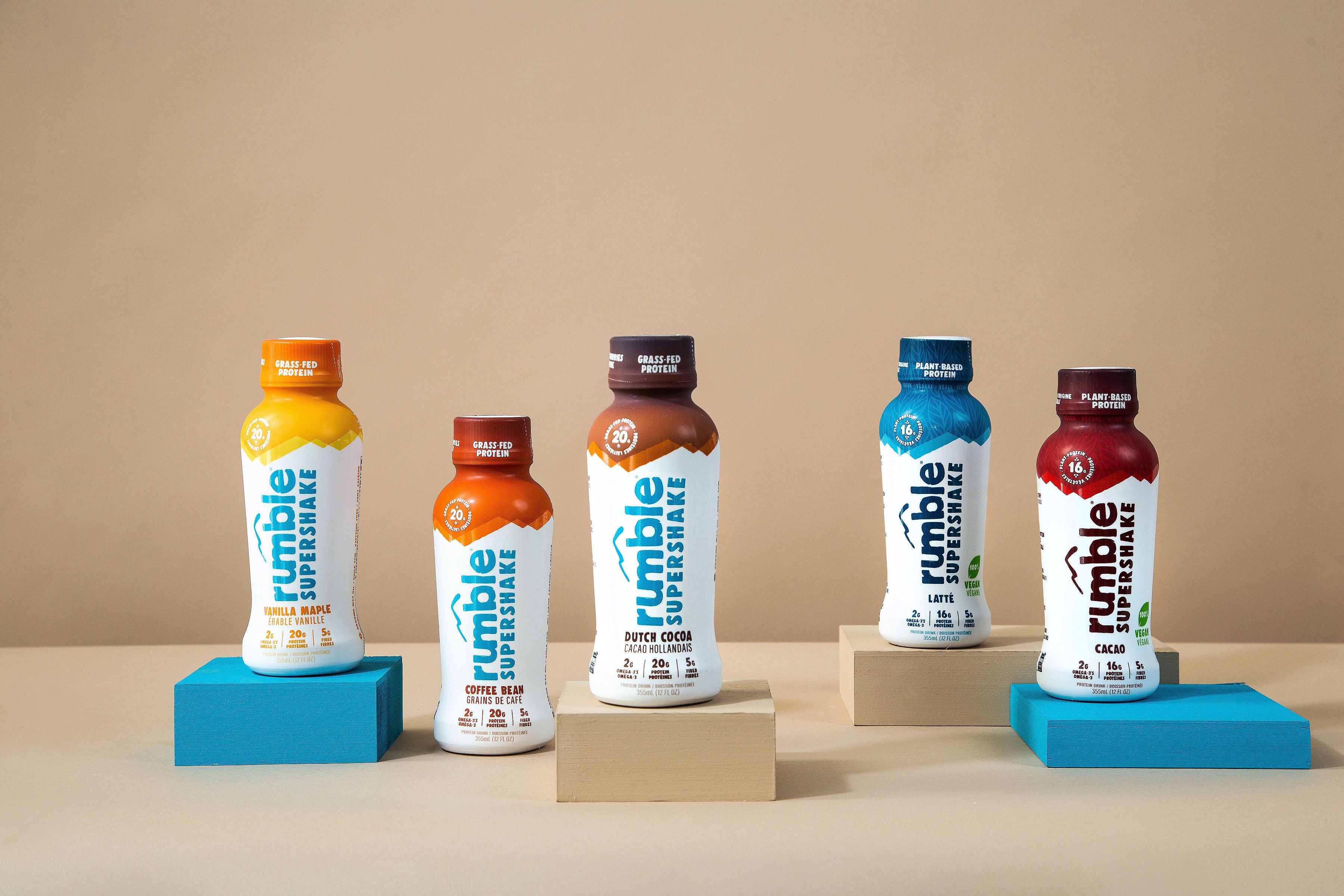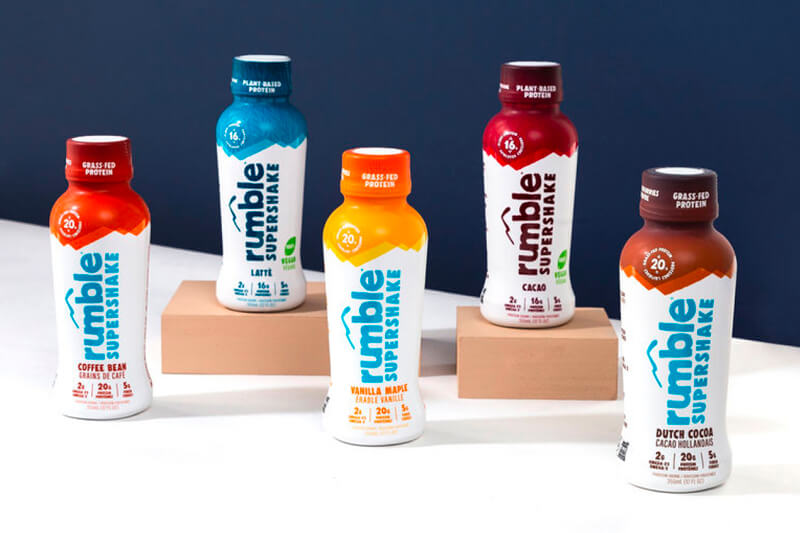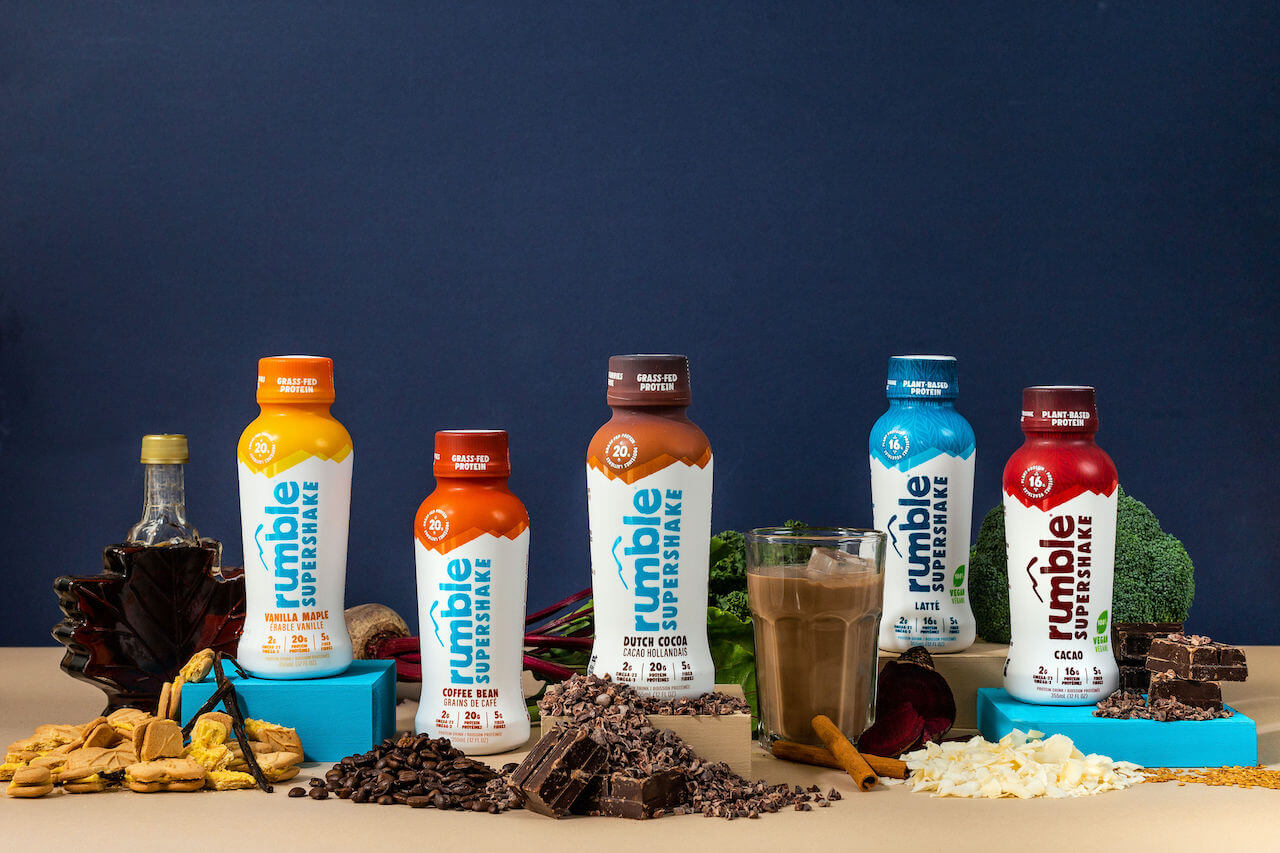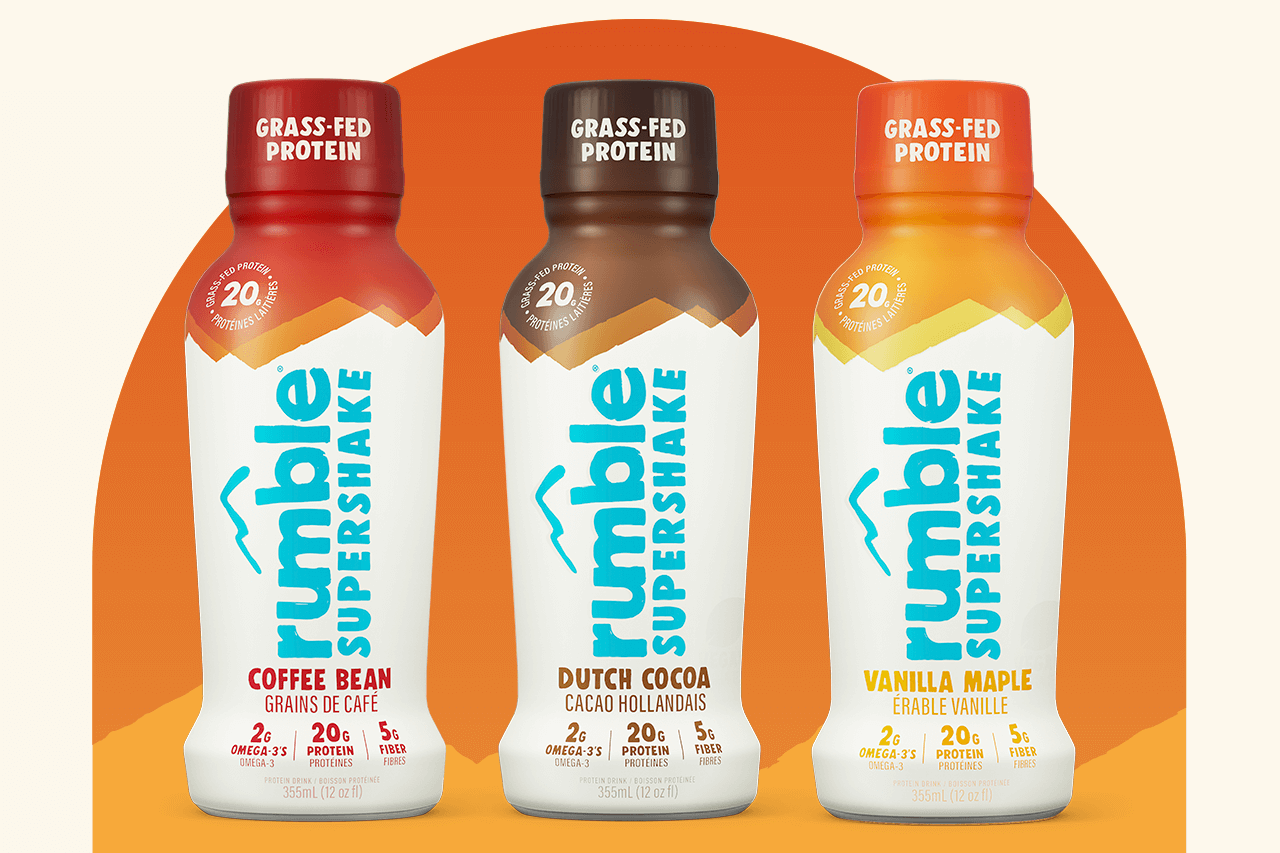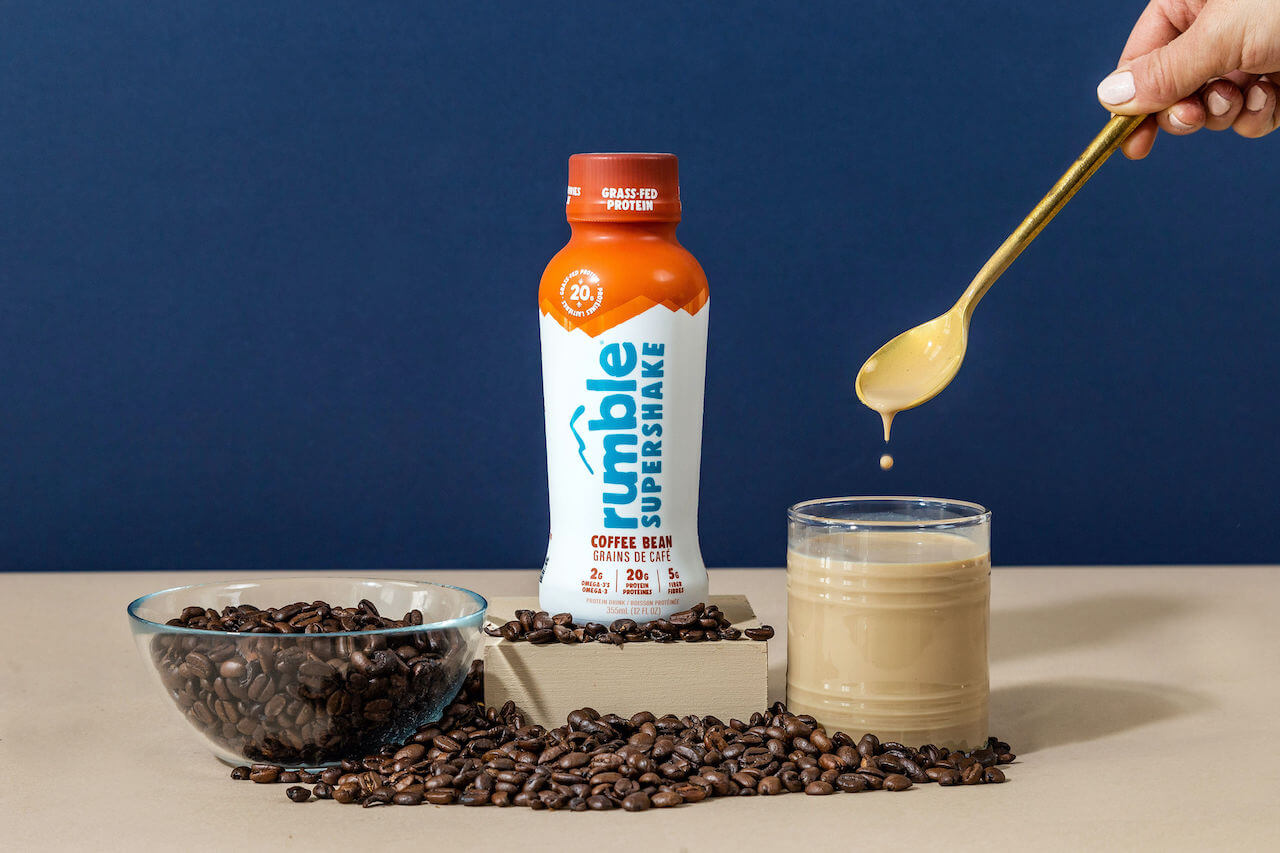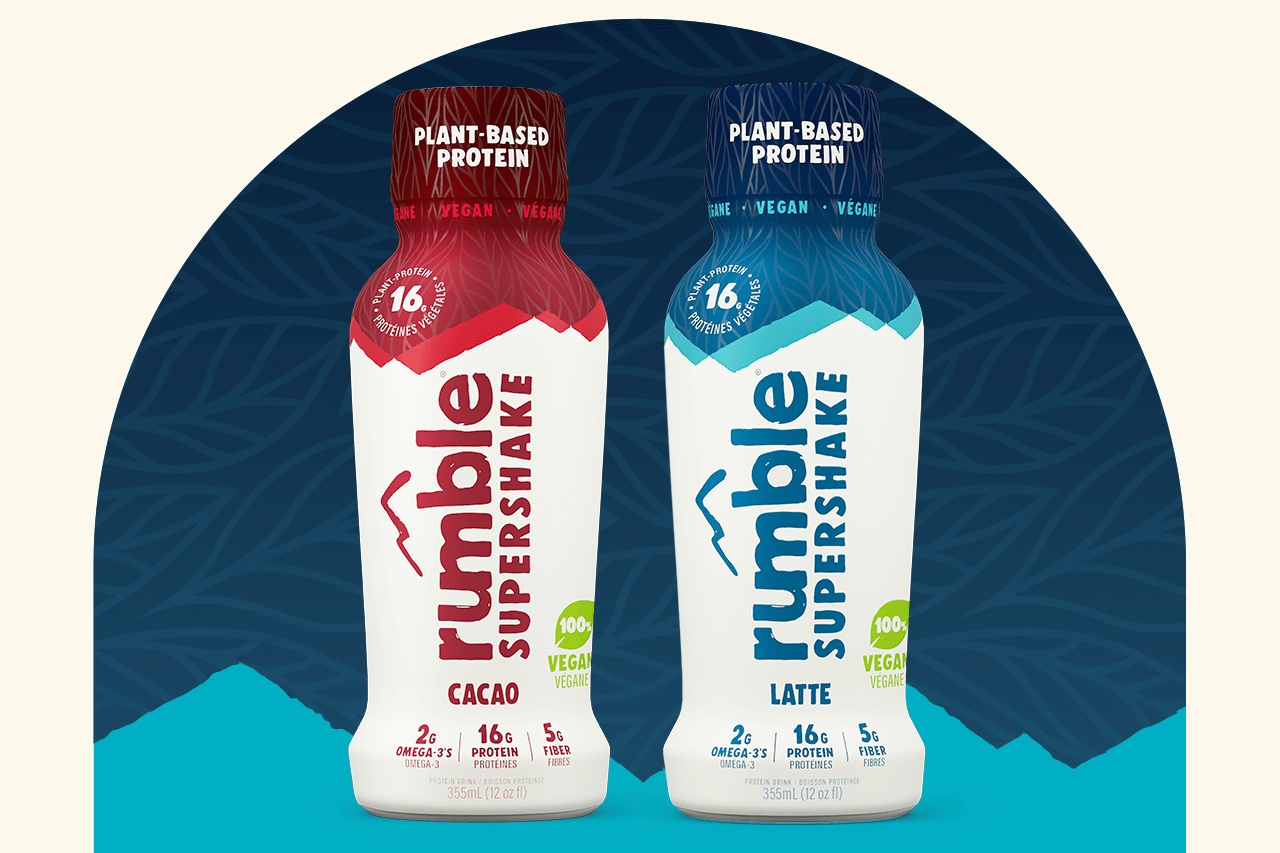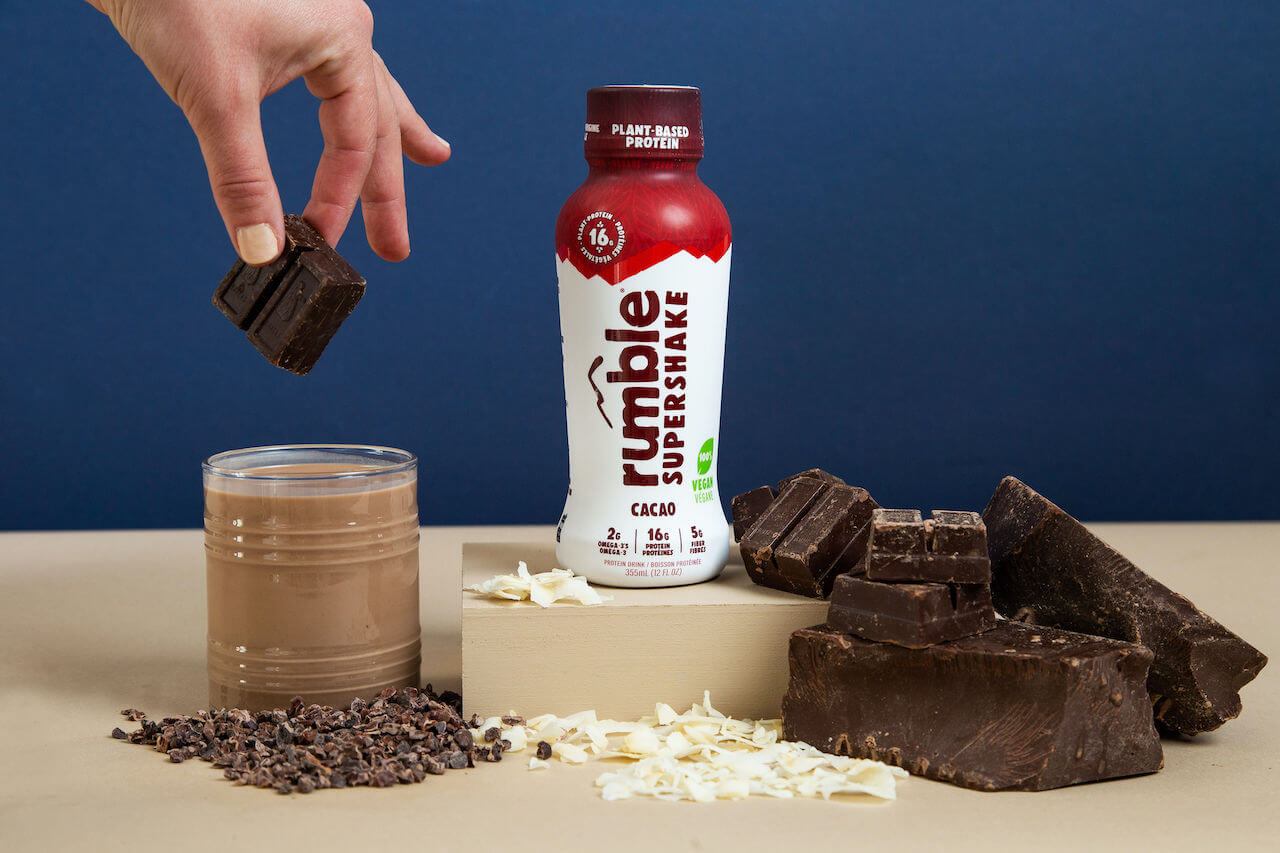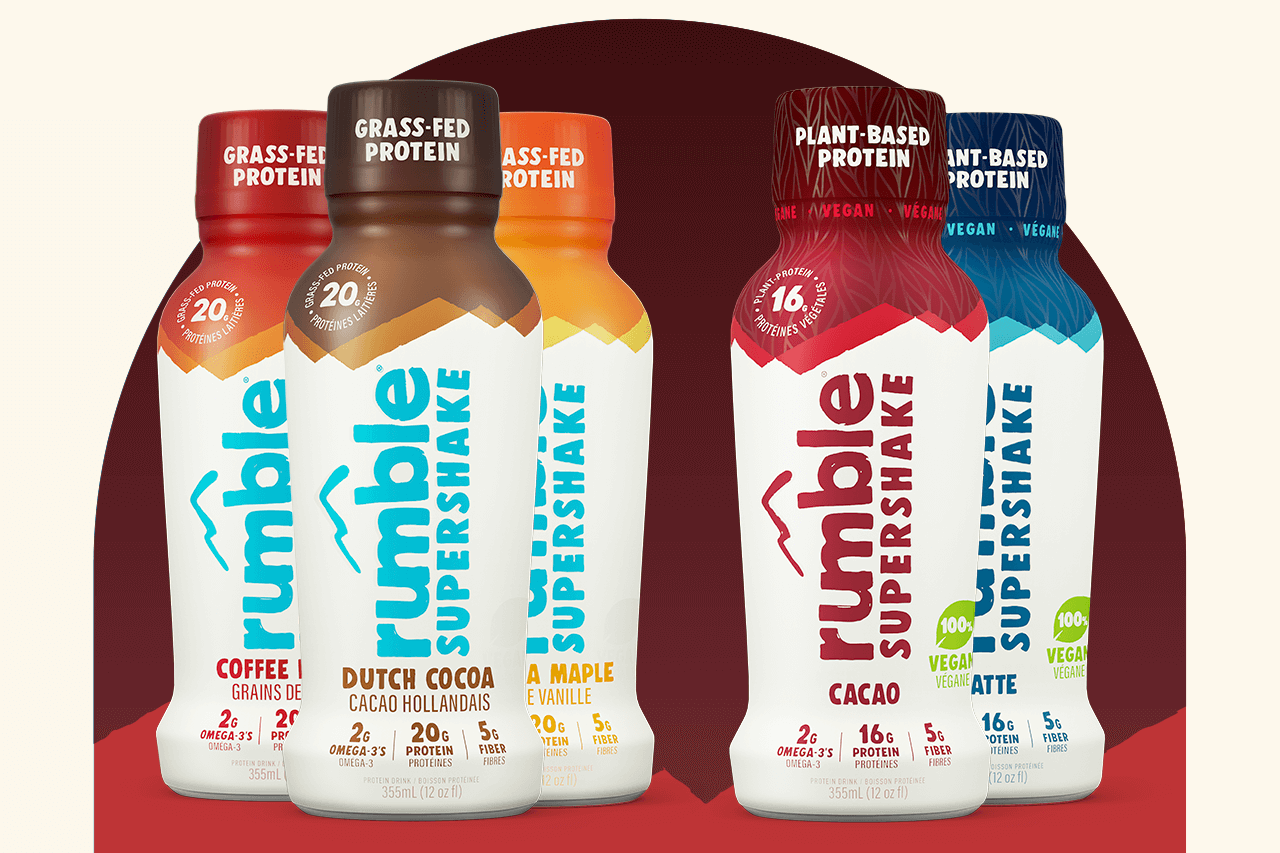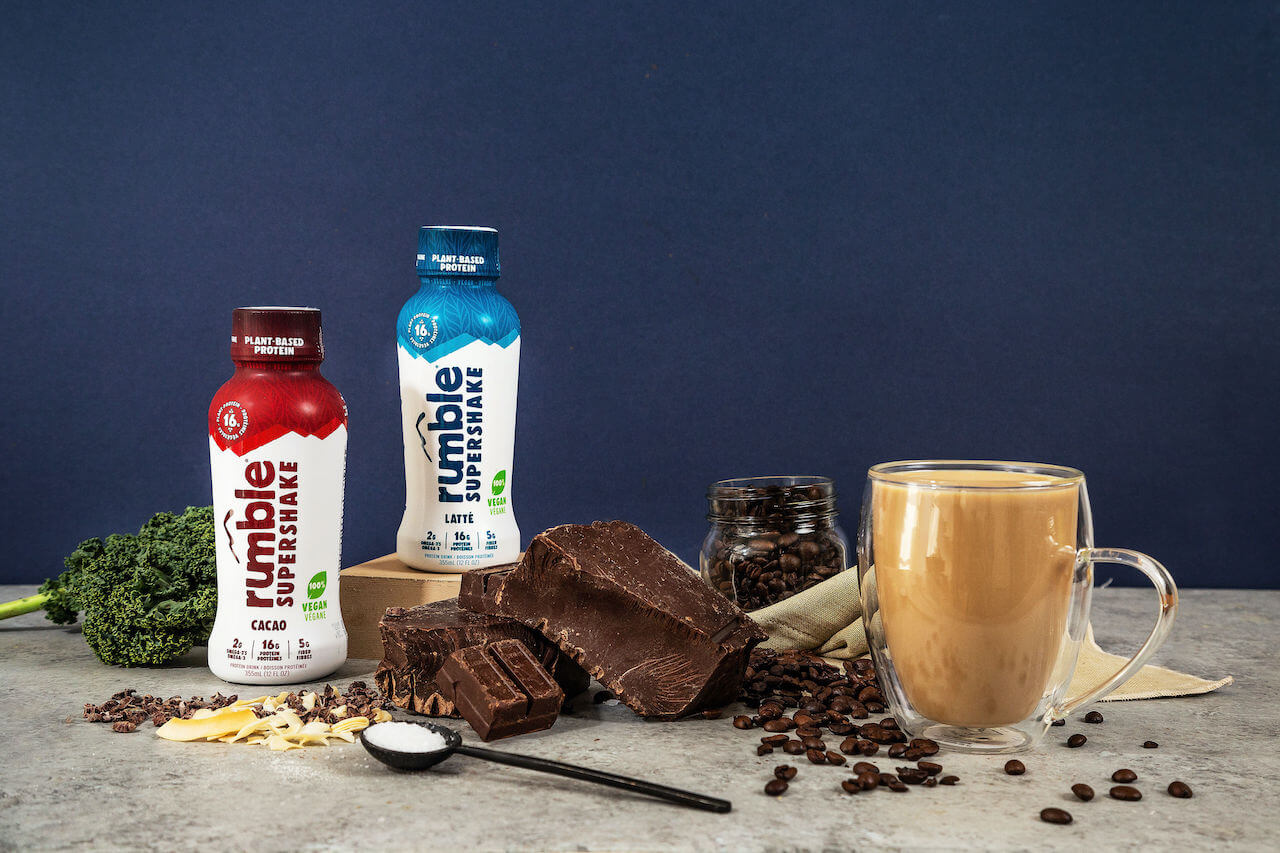What it Takes to Build a Natural Food Company in Canada: Q&A with Rumble Co-Founder James McQueen

Ever wondered what goes into starting a beverage company? Co-founder James McQueen has ridden the Rumble roller coaster since the very beginning in 2010, when Rumble Supershake was just an idea and a collection of recipes from Paul’s kitchen. Here he shares a few of the things he’s learned along the way.
Q: What was your background before joining Rumble?
A: I used to work in finance. After graduating with an International Business degree from UVic, I started with a job in the accounting department of a small book publisher in London, UK. Then I was hired on at Deutsche Bank, and eventually worked my way up to a position in investment banking for RBC in New York.
Q: Why move from finance to a natural food start-up?
A: I enjoyed my career in finance and reflect on it regularly in terms of the skillset it taught me, but I was ready for a new challenge. I was keen to try something entrepreneurial and something where I felt like I was making more of an impact. As a former varsity athlete and someone who’s into nutrition, a natural food start up seemed like a great starting point!
Q: How has your job at Rumble changed since joining?
A: It’s always changing! Working in a small entrepreneurial business is dynamic. I started out by helping my co-founders write a business plan and create investor materials to help raise the necessary seed capital to get the business up and running. Initially, I focused on finance and operations, but now it has grown into running the business and overseeing everything, including sales and marketing.
Q: If you could go back to 2012 when you and the other original Rumble co-founders launched Rumble, what would you do differently?
A: Difficult question to answer, as you always have 20/20 hindsight, so in a sense there’s lots we might do differently. I’d say the number one thing is I would have trusted our instincts a bit more in the early years on how quickly we should have expanded. We got caught up in growing too quickly, and moved into the US market when we were still building brand awareness in Canada. We couldn’t sustain growth in both markets.
Q: What would you do the same?
A: The product and the brand. I still believe in the difference Rumble makes for some people who really need it and that speaks to the power of Paul’s story and the authentic need he and others have for something like Rumble. I’m a believer in disruptive branding and packaging, and I think that approach has held us in good stead.
Q: Were any milestones easier to achieve than you expected?
A: Yes, I remember getting our first Whole Foods SoPac (Southern CA region of Whole Foods US) order, selling directly to an NFL team (the Oakland Raiders) or reaching a million bottles sold - all those milestones were ones that I honestly wasn’t sure if we’d ever reach.
It’s been a ton of hard work with many ups and downs, but we feel grateful to have accomplished what we have, and to still be growing and getting Rumble in the hands of people who really rely on it.

Q: What was harder than you thought?
A: The beverage industry is super competitive, with very high barriers to entry. It requires a lot of capital to scale and I don’t think we truly appreciated that at the outset. On a personal side, there’s been lots of sleepless nights and risk. Being an entrepreneur requires some serious internal fortitude to ride out the journey and overcome obstacles. We were told ‘no’ by investors a lot at the beginning. Walking away from a successful career to try something you believe in isn’t always as easy as it sounds.
Q: Lots of attention is paid to tech start-ups these days - how are the challenges of starting a natural food business different?
A: In most instances, a natural food business requires more start-up capital compared to tech, because you have to design packaging, develop formulas, and pay for your first production runs up front.
The brand side is also sometimes even more important than what the product does for the consumer, in terms of drawing consumers in. Tech can be more product-driven at an early stage, with brand coming later.
Natural food start-ups are in some respects more risky, because once you launch you really have to nail it - it’s not as easy as tech to interrate or pivot along the way. The ‘fail fast and fail often’ mentality in tech doesn’t necessarily translate, again because of the capital intensive nature of early stage food and beverage CPG. If the product doesn’t sell the first time, it very rarely will sell in a reincarnated version.
Q: Are there any specific challenges to launching a beverage versus other kinds of foods?
A: Yes, unless you are making something that can be made at a very small scale (e.g. kombucha, tea or or a soda product), most beverage categories require a large production partner.
To find a small commercial food kitchen or commissary with bandwidth for food production is fairly easy these days, whereas large beverage production partners have minimums that can be a lot higher than food. Generally, there is more risk involved in navigating that successfully and convincing a production partner to believe in the market potential of your product.
In our experience, to make a shelf stable, high-protein drink with a challenging ingredients deck like Rumble, it was very tough to find the right partner. If you want your product made well, with innovative packaging and at relatively low initial production volumes, there are only so many beverage partners out there that will pick up the phone.
Q: How does the Canadian market differ from the American market in natural foods?
A: Four reasons:
1). In Canada, there’s a much lower cost to doing business, since retailer listing fees, free fills, discounts, etc aren’t as high as in the US (not to mention the USD/CAD exchange).
2). Trends are a little slower to take off in Canada. I’d say there is a 1-3 year delay or lag in terms of trends taking off at retail here versus the US, so there’s more of an opportunity to be new and disruptive.
3). The US market is ten times bigger but also ten times more competitive. If you can find a way to win in the US, the risk is huge but so is the payoff.
4) The industry players (retailers, brokers, distributors, buyers, etc) tend to be more friendly in Canada compared to the US. In my experience, the US is quite a bit more cutthroat.
Q: Walk us through all the work that was required behind-the-scenes to get the new Rumble Supershake on store shelves.

Sometimes communicating with packaging designers on exactly what you want them to bring to life can take months of back and forth to get it just right. Every little detail has to be right, and adhere to federal rules and regulations.
The supply chain and production partner set-up is a massive endeavour as well, and critical to the business’ success. Every ingredient comes from a different supplier and sometimes you are at a risk of things happening in other parts of the world. For example, we’ve had production delays caused by a trucking strike in Columbia (the source of our Fair Trade Organic Coffee), and low vanilla bean yields in Madagascar (the source of our organic vanilla extract). High global demand for grass-fed dairy proteins coming from New Zealand (where the cows graze on grass year-round) also posed problems for us.
Once we had a new formula we loved, there’s the challenge of scaling it up for production, nailing plant trials at our co-packer, and working with our distribution and retail partners across the country to get product back onto shelves and properly merchandised. So from concept to back-on-shelves was a very lengthy and involved process from start to finish.
Q: How do you plan to balance business expansion with stability going forward?
A: I work closely with a leadership group that is comprised of other owners that have a vested interest in seeing the business succeed while staying true to our mission and values. They aren’t involved daily, but they play an active role in helping me steward the business’ growth from a strategic standpoint.
The short answer though, is we now have a second chance and aren’t expecting it to happen overnight. Most CPG brands aren’t overnight success stories, but are built over time with a sustained and consistent approach and a strong strategic plan.
Q: What’s the most fun part of your job?
A: Tough question! We have a lot of fun at Rumble and are passionate about what we do. I’d say it’s working with the team and getting product in people’s hands, especially those who need it the most because of health challenges. When I read testimonials of what the product is doing for people, it’s really rewarding and keeps me motivated to drive further.
We also do trade shows and events, which are a lot of fun to get out and see the customer feedback first hand and talk with friends from other brands (it’s a tight community of people behind the push in natural foods). Lastly, I really enjoy working on building the brand and thinking about what’s next for product development and packaging innovation.
Q: What’s the most challenging?
A: I enjoy the hustle, but sometimes, I’d say it can be tough to find the time to take a pause or a break to properly recharge. I’ve gotten better at it over the years, but it’s still hard to completely unplug in the evenings, on weekends, or while on vacation. When you help create something and you believe in it, it’s sometimes hard to step away and let go. It’s always with you.
The second thing I’d say is expectation management, both internally and externally. Early stage businesses are hard to forecast and accurately plan as they are very dynamic in nature.
Q: What advice would you give to someone looking to start a food or beverage brand in Canada?
A: Do it! The retail landscape of food and beverage is changing so much right now that it’s a great time to spot gaps in the market or disrupt a category. There are so many supportive mentors and advisors out there, as well as an active and deep investment community. If you have a good idea, don’t hold on to it - go for it!
Q: What excites you now about the future of Rumble?
A: More innovation, more growth, bigger team. We are constantly trying to push the status quo in what we do (formulation, taste, packaging and how we go to market), so I’ll be interested to see where that is at in 5-10 years. I’d love to see Rumble be a household brand by then.



